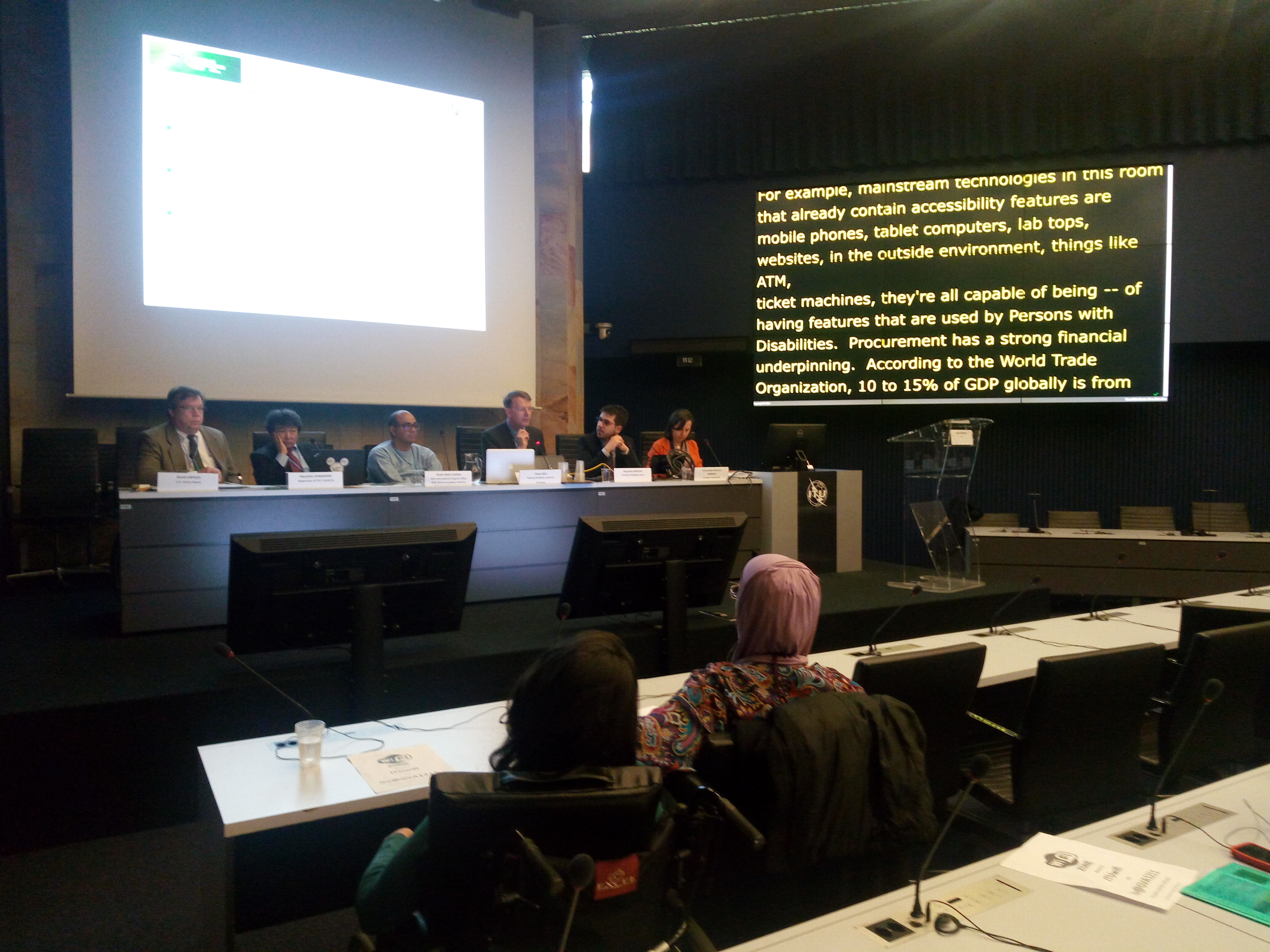Policies that require government agencies to procure accessible ICTs are a proven force in ensuring that accessible ICTs are readily available in the countries that have such policies. Effective policies require a related standard to be used by procurers, manufacturers and service providers. This session will explore the role of effective public procurement policies and standards in ensuring that accessible ICTs become a reality. These practices can be used by education, employment and e-government agencies. ITU has developed a model policy on the public procurement of accessible ICTs. The session will explore this policy and the two leading relevant standards from the European Union and the United States and efforts to harmonize these standards.
This session will explore best practices highlighted in the ITU G3ict Model ICT Accessibility Policy Report at itu.int/en/ITU-D/Digital-Inc…
Moderator
Dónal RICE, Senior Design Advisor, ICT Centre for Excellence in Universal Design, National Disability Authority of Ireland and co-author of the ITU-G3ict Model Policy on the Public Procurement of Accessible ICTs
Speakers / panellists
- Session Introduction: Kemal Huseinovic, Chief Infrastructure, Enabling Environment and E-Application Department (IEE), ITU Bureau of Telecommunication Development (BDT)
- Shadi ABOU-ZAHRA, Activity Lead, WAI International Program Office W3C Web Accessibility Initiative (WAI)
- David CAPOZZI, U.S. Access Board, United States of America
- Masahito KAWAMORI, Rapporteur of ITU-T Q.26/16 ‘Accessibility to multimedia systems and services’
- Alejandro MOLEDO, New technologies & innovation officer, European Disability Forum
- Inmaculada Placencia Porrero, Deputy Head of Unit, Rights of Persons with Disabilities, DG JUST, European Commission
- Gregg VANDERHEIDEN Ph.D., Director Trace R&D Center, University of Wisconsin /University of Maryland (remote participant)
Link to WSIS Action Lines
- C1. The role of public governance authorities and all stakeholders in the promotion of ICTs for development
- C2. Information and communication infrastructure
- C4. Capacity building
- C6. Enabling environment
C1: Governments have a leading role in developing and implementing comprehensive, forward looking and sustainable national e-strategies.
C2: In the context of national e-strategies, address the special requirements of older people, persons with disabilities, children, especially marginalized children and other disadvantaged and vulnerable groups, including by appropriate educational administrative and legislative measures to ensure their full inclusion in the Information Society.
C4: Promote e-literacy skills for all, for example by designing and offering courses for public administration, taking advantage of existing facilities such as libraries, multipurpose community centres, public access points and by establishing local ICT training centres with the cooperation of all stakeholders. Special attention should be paid to disadvantaged and vulnerable groups.
C6: Governments should foster a supportive, transparent, pro-competitive and predictable policy, legal and regulatory framework, which provides the appropriate incentives to investment and community development in the Information Society.
All of these WSIS Action Lines can be achieved to address the needs of persons with disabilities through policies and standards calling for the public procurement of accessible ICTs.
Link to the Sustainable Development Process
- Goal 4: Ensure inclusive and equitable quality education and promote lifelong learning opportunities for all
- Goal 8: Promote inclusive and sustainable economic growth, employment and decent work for all
- Goal 10: Reduce inequality within and among countries
- Goal 11: Make cities inclusive, safe, resilient and sustainable
- Goal 17: Revitalize the global partnership for sustainable development
SDG Goal 4: accessible ICTs have a role to play in ensuring inclusive education for persons with disabilities. Public procurement policies and standards requiring the procurement of accessible ICTs are an effective tool for government educational institutions to implement SDG 4 and create a market for accessible ICTs that can be used by all educational institutions.
SDG Goal 8 accessible ICTs have a role to play in ensuring full and productive employment and decent work for persons with disabilities. Public procurement policies and standards requiring the procurement of accessible ICTs are an effective tool for government employers to implement SDG 8 and create a market for accessible ICTs that can be used by all employers.
SDG 10: accesible ICTs promotes the social, economic and political inclusion of all, irrespective of disability. Public procurement policies and standards create a market for accessible ICTs to support SDG 10 implementation.
SDG 11: accessible ICTs foster accessible transport systems for all including persons with disabilities and older persons. Public procurement policies and standards requiring the procurement of accessible ICTs are an effective tool for government transportation agencies to implement SDG 11.
SDG 17: Public procurement policies and standards requiring the procurement of accessible ICTs encourages and promotes effective public, public-private and civil society partnerships.


